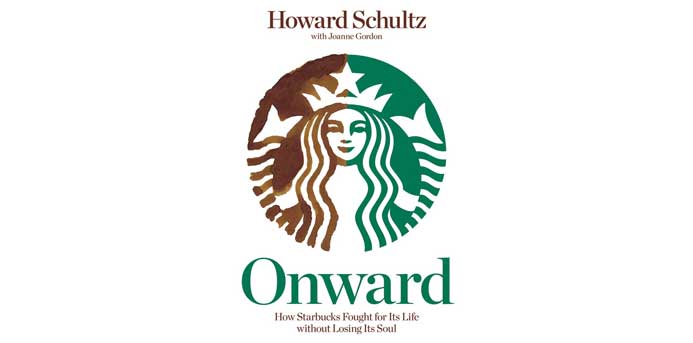Highland Park native Joanne Gordon is easy to find—just head to your local Starbucks, where you’ll see her picture inside the book jacket of the best-seller “Onward.”
“It’s weird,” the Seattle resident says of having her photo in thousands of Starbucks stores in the U.S. and other countries. “I’ve been hearing from people from my past.”
Collaborating on the book with Starbucks Chairman, President and CEO Howard Schultz is one of the highlights of Gordon’s long career in business writing and ghostwriting, which started when she was a reporter and writer at Forbes, and includes 5 other books. “Onward: How Starbucks Fought for Its Life without Losing Its Soul” chronicles Schultz’s work to reinvigorate Starbucks after a period of decline, while remaining true to the company’s original values and mission.
Make It Better’s Senior Editor sat down with Gordon to ask her 10 questions about the book, finding happiness at work and more.
 Writing this book was the opportunity of a lifetime. I was given a very rare, behind-the-scenes look at the company at the tail end of its turnaround, and came to understand everything that the company learned and what Howard went through. I was allowed to sit in on all the leadership meetings, travel with senior leaders of the company and talk to anyone I wanted to.
Writing this book was the opportunity of a lifetime. I was given a very rare, behind-the-scenes look at the company at the tail end of its turnaround, and came to understand everything that the company learned and what Howard went through. I was allowed to sit in on all the leadership meetings, travel with senior leaders of the company and talk to anyone I wanted to.
I’ve always been curious about what makes leaders succeed or fail—the people side of business.
A great leader pushes people further than they think they can go, but not further than they are capable of. Howard Schultz is great at this. And people want to go the extra mile because they believe in what he is asking them to do. Howard brings visions to life.
My name is on the cover the book, too, because Howard is incredibly gracious and generous. His line is, “Success is best when it’s shared.” That generosity is another sign of great leader.
I’ve learned business is a balancing act between the hard and soft aspects, between Wall Street and a company’s culture, the emotional and the financial, intuition and rigor.
The secret to being happy at work is process, purpose and people. For my book, “Be Happy at Work,” I interviewed more than 100 women, and profiled 100 women who all loved their jobs. They had three things in common:
- Process means you are challenged by, but capable of, the tasks your job requires.
- Purpose means you feel good about what you’re doing. It doesn’t have to be altruistic, but it has to sit well with your values.
- People means you like—and at the very least, are respected by and respect—the people with whom you work. Respect shows up in a lot of ways: how you’re evaluated, how you’re paid, etc.
My advice to workers weathering the recession is don’t assume you have no choice just because the choices have been reduced. You can be happy to have a job, and that doesn’t mean you’re happy at the job. Don’t abandon what’s important to you and your values. Maybe put it on hold for a little bit, and try to find the good in what you have.
Growing up in Highland Park, when my friends’ fathers would come home from work—and back then, it was mostly the dads—I was bizarrely curious about what they did all day.
A book that inspired me is Studs Terkel’s “Working,” which I read at a young age. It showed a personal side of working life that had never been exposed before.
What I love about my job is writing with people, as opposed to about them. I think it’s more honest. It lets you dig deeper. I help people find their voice.

